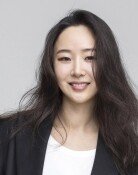Polifessors
“When I saw memo cards that I had prepared to write research papers after becoming the university president, I could not remember why I had written them down.” Seoul National University President Kim Jong-un told me, a correspondent to the university. This reflects his regret that during the early days after assuming the university’s presidency in the 1990s, he had to distance himself from academic study as a scholar of English literature. I also remember him saying he felt deeply sorry about the criticism in society that the school is recruiting the best talents as freshmen but transform them into common talents upon their graduation.
A professor can easily become negligent in academic research if he takes an administrative post even if he stays within the campus, and a professor who hangs around the political circle will hardly be able to conduct research and lectures properly. For this reason, critics call such professors "polifessors" whenever elections take place. Even so, a growing number of professors race to join election camps for leading presidential candidates, because they have employers that they can return even if their choice of candidate fails to take power, and if successful, they can expect a bonanza. Under the 2013 revision of the National Assembly Act, a professor who seeks to be elected a lawmaker should resign as professor from the 20th General Assembly. Posts that are appointed in the government, such as prime minister, minister, or presidential secretaries, are allowed to take a leave of absence and return to professorship later.
Controversy is heating up over whether Cho Kuk, senior presidential secretary for civil affairs who hails from the Seoul National University Law School, is a polifessor or not. Cho’s own remarks that “if a professor serves as a lawmaker, four professors should give up their yearlong sabbatical year” have come back to haunt him. He said this to criticize a professor who ran as a then Grand National Party candidate in the 2008 general elections. Would there be any professor who has to give up sabbatical year due to Cho taking a leave of absence? Former Liberty Korea Party presidential candidate Hong Joon-pyo blasted Cho, saying, “Whether he is called Pa Kuk (disruption) or Cho Kuk, he should resign as Seoul National University professor.” Some are trying to cover Cho by saying that he was ranked No. 1 in citations of research papers in the law field from 2002 to 2012.
Cho has been trying to justify his engagement in politics in his own study room, by saying that he seeks to benchmark the example of Yoo Seong-ryong (penname Seoae) who was a scholar and politician in the Joseon Dynasty. After assuming the senior presidential secretary post, Cho uploaded the last post in his Facebook account, reading “I will be attacked by many, but I will push ahead agendas despite attacks.” In an interview, he also claimed that serving as senior presidential secretary for civil affairs is not engagement in politics. Cho might have better lived up to his reputation if he had argued “Should a professor not be allowed to engage in politics?” after displaying his pro-Moon Jae-in stance by widely intervening in real politics through his books and statements previously.
Headline News
- Med professors announce intention to leave hospitals starting Thursday
- Bridge honoring Sgt. Moon Jae-sik unveiled in Pennsylvania
- Chief of Staff Chung tells presidential secretaries to stay away from politics
- US FTC bans noncompete agreements
- N. Korea launches cyberattacks on S. Korea's defense companies







